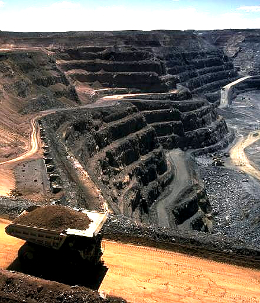BHP warned credit rating could slip
 BHP Billiton, the world’s biggest mining firm, could have its credit rating downgraded.
BHP Billiton, the world’s biggest mining firm, could have its credit rating downgraded.
Ratings agency Standard & Poor's (S&P) says if commodity prices remain weak, the view of BHP could be tarnished.
S&P says BHP could be able to help itself, if it changed its policy of maintaining and increasing dividend payouts amid the challenging conditions.
For now, the agency has kept BHP’s A-plus long-term credit rating and its short-term rating of A-1, but its outlook on the company has downgraded from stable to negative.
Despite BHP's diverse range of projects and assets, it remains very exposed to iron ore prices and oil too, both of which have seen slumps in the past year.
The reduced outlook is the first sign that the full credit rating could be downgraded.
“The outlook revision reflects our concerns that continued weakness in commodity prices, combined with BHP Billiton's commitment to a progressive dividend payment, may weaken the company's key financial metrics to below our expectations for the A plus rating without offsetting measures by the company,” analyst May Zhong told reporters this week.
Resource companies usually conserve cash by paying out minimal dividends, even during boom-times, but the low interest rate in recent years has forced them to compete with financial and industrial firms and pay-out an increasing proportion of profit to shareholders.
But the crash in resources prices has caused analysts to wonder if the miners can keep up such a policy.
“We believe BHP Billiton has further scope to reduce its operating costs and capital expenditure to conserve cash amid lower earnings due to the cyclical weakening of its main commodities,” Ms Zhong said.
“The company has invested heavily in certain major development projects in recent years which provides it with considerable discretion to reduce its spending over the next two to three years without impeding growth in its production.”
S&P says it expects the company to drum-up some positive free operating cash flow after capital expenditure, even if commodity prices stay down.








 Print
Print